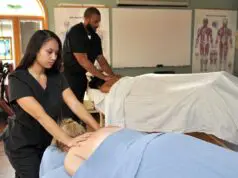
Exams. Just the word alone can invoke a sense of impending doom for many. Despite the nerves, these evaluations play a pivotal role in academic and professional pathways. As benchmarks of understanding, exams can open doors to opportunities, but also bring about immense pressure. Thankfully, with the right techniques, it’s possible to navigate this academic labyrinth with finesse. The art isn’t just in studying harder, but smarter. This guide delves into top-tier strategies that can significantly elevate your exam performance. Dive in, and unlock your potential.
Understanding Your Learning Style

Not all brains are wired the same. Some of us grasp content through visuals, some by listening, while others by doing. This categorization is simplified as visual, auditory, and kinesthetic learning styles. Knowing your primary style isn’t just insightful; it’s transformative.
- Visual Learners: Flourish with diagrams, charts, and mind maps. Color-coding and flashcards can be powerful tools for retention.
- Auditory Learners: Benefit from listening to lectures, podcasts, or even reading aloud. Recording notes and replaying can solidify understanding.
- Kinesthetic Learners: Learn best by doing or simulating. Role-playing, hands-on activities, or even teaching others can be game-changers.
Discovering your style can be as simple as reflecting on which methods resonate most or using online quizzes such as Gizmo. Tailor your studies accordingly, and see the magic unfold.
Effective Time Management

Time, an ally or adversary, hinges on management. Strategizing your study hours can lead to maximized retention and minimized burnout. Techniques such as the Pomodoro – where focused study sessions are interspersed with short breaks – can boost productivity. Another method, time blocking, involves partitioning your day into dedicated chunks for specific tasks.
To succeed, draft realistic schedules. Factor in breaks, leisure, and unpredicted disruptions. Consistency is key. Gradually, this routine transforms into habit, steering you closer to exam excellence.
Active Recall and Spaced Repetition
Imagine trying to retrieve a book from a massive library. Active recall is that process, but with information from your brain. It’s challenging but profoundly effective. Instead of re-reading notes, quiz yourself. This retrieval strengthens neural pathways.
Partnered with spaced repetition, a technique that involves reviewing information at increasing intervals, your retention rockets. Platforms like Anki or Quizlet can automate this process. Together, they make a formidable duo against the curveballs exams might throw.
Mindful Note -Taking Techniques

Taking notes isn’t just jotting down. It’s an art of translating information actively. The Cornell Method, which involves cues, notes, and summaries, is an efficient approach. Alternatively, concept mapping, where ideas interlink, can visually represent intricate topics.
Revise these notes periodically. Consider rephrasing, highlighting, or even teaching someone. This engagement transforms mere notes into potent study arsenals.
Utilizing Practice Questions and Mock Exams
Practicing with exam-style questions uncovers blind spots. This active engagement with content can reveal nuances missed during passive reading. Seek out past papers or online resources, mimicking exam conditions for a genuine test feel. This rehearsal not only builds content familiarity but also bolsters confidence.
Healthy Lifestyle and Self-Care

Brain prowess isn’t solely about rigorous study sessions. Physical well-being intertwines with cognitive function. Nutrition, exercise, and rest are pivotal. A balanced diet fuels the brain, exercise enhances blood flow, and sleep consolidates memory.
Equally vital is stress management. Techniques like meditation, deep breathing, or simple hobbies can reset a frazzled brain, keeping it exam-ready.
Test-Taking Strategies
In the exam arena, strategy is king. For multiple choices, eliminate evident wrong answers. Essays? Plan your answer before diving in. Always read questions meticulously, allocate time wisely, and revisit answers if time permits. Remember, composure during the test can be as crucial as the content itself.
Seeking Help and Collaboration
The journey doesn’t have to be solitary. When confused, ask. Peers, professors, or online platforms can offer clarity. Group studies can unveil diverse perspectives, and explaining concepts to peers solidifies understanding. Collaboration, when done right, is symbiotic and enriching.













